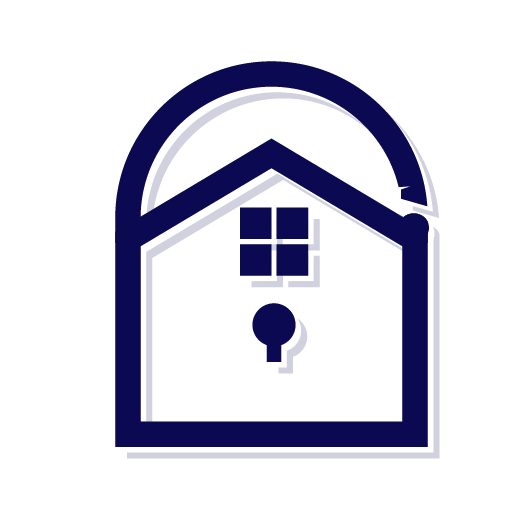When it comes to fire safety, remember the saying, "An ounce of prevention is worth a pound of cure." Your safety as a renter is not only about having a place to call home but also ensuring it is a safe haven in case of emergencies. Understanding your rights and responsibilities regarding fire safety is crucial for your well-being and that of your neighbors. Stay tuned to discover what you need to know to navigate the world of fire safety as a renter.
Importance of Fire Safety Awareness

Understanding the critical importance of fire safety awareness is paramount for renters to protect themselves and their property effectively. One essential aspect of fire safety is conducting regular fire drills. By practicing fire drills, you can familiarize yourself with the escape routes and ensure that everyone in the household knows what to do in case of a fire emergency. It is crucial to take these drills seriously as they can make a significant difference in a real-life situation.
Another vital component of fire safety is ensuring that smoke alarms are installed and working correctly in your rental property. Smoke alarms serve as an early warning system, alerting you to potential dangers and giving you precious time to evacuate safely. Remember to test your smoke alarms regularly and replace the batteries as needed to guarantee they are in good working condition. By staying vigilant and proactive about fire safety measures like fire drills and smoke alarms, you are taking crucial steps to protect yourself and your home from the devastating effects of a fire.
Landlord's Obligations for Fire Prevention
To ensure your safety as a renter, it is crucial to understand the obligations that landlords have for fire prevention in rental properties. Landlords have specific duties when it comes to minimizing fire hazards and ensuring the overall safety of their tenants. One of the primary responsibilities of landlords is to maintain the property in a safe condition, including addressing any fire hazards promptly. This includes ensuring that electrical systems are up to code, providing functioning smoke detectors in designated areas, and keeping fire exits clear and accessible at all times. Landlords must also conduct regular inspections to identify and address potential fire risks, such as faulty wiring or flammable materials on the premises. In the unfortunate event of a fire, landlords should have emergency procedures in place to guide tenants on evacuation routes and actions to take in case of a fire. By fulfilling these obligations, landlords play a crucial role in safeguarding the well-being of their tenants and preventing fire-related incidents.
Tenant's Responsibilities in Fire Safety

Responsibly maintaining a fire-safe living environment is a vital aspect of being a tenant in a rental property. As a tenant, it is crucial to prioritize fire safety by staying informed and educated. Familiarize yourself with the fire evacuation plan provided by your landlord and ensure all household members are aware of the procedures. Conduct regular fire drills to practice how to exit the building safely in case of an emergency. By practicing these drills, you can increase your preparedness and reduce the risk of injuries during a real fire situation.
Additionally, as a tenant, it is your responsibility to avoid behaviors that could increase the risk of fires, such as overloading electrical outlets, leaving candles unattended, or smoking indoors. Stay vigilant about potential fire hazards in your living space and take proactive measures to address them promptly. Remember that fire safety is a shared responsibility, and by staying educated and proactive, you contribute to creating a safer living environment for yourself and others.
Essential Fire Safety Equipment for Renters
To ensure your living space is adequately prepared for potential fire emergencies, it is essential for renters to have the necessary fire safety equipment readily available. Two crucial pieces of equipment that every renter should have in their home are fire extinguishers and smoke alarms.
Firstly, fire extinguisher maintenance is key. Make sure your fire extinguisher is easily accessible and not expired. Regularly check the pressure gauge, seals, and any visible damage. It's also vital to familiarize yourself with the PASS technique: Pull, Aim, Squeeze, Sweep, to effectively use the extinguisher in case of a fire.
Secondly, smoke alarm testing is imperative for early fire detection. Test your smoke alarms monthly by pressing the test button to ensure they are functioning correctly. Change the batteries at least once a year, and if the alarm is more than ten years old, consider replacing it altogether for optimal safety.
Emergency Fire Evacuation Procedures

In the event of a fire emergency, ensure you are familiar with the specific evacuation procedures for your building or rental property. Knowing what to do and where to go can make a significant difference in ensuring your safety and that of others. Here are some key points to consider when it comes to emergency fire evacuation procedures:
| Key Point | Description | Importance |
|---|---|---|
| Conducting Fire Drills | Regularly practicing fire drills helps everyone understand what to do in an emergency. | Familiarity with evacuation procedures is vital. |
| Identifying Escape Routes | Knowing the nearest escape routes and alternative exits can save precious time during a fire. | Clear paths for evacuation are crucial. |
| Safe Meeting Points | Establishing designated meeting points outside the building ensures everyone can be ac-counted for after evacuating. | Ensures everyone is safe and present. |
Make sure you participate actively in fire drills, understand your escape routes, and know the designated meeting points. Being prepared can save lives in a fire emergency.
Frequently Asked Questions
Can a Landlord Be Held Liable for Damages Caused by a Fire if They Were Not Aware of Any Fire Hazards on the Property?
Yes, a landlord can still be held liable for damages caused by a fire, even if they were unaware of fire hazards on the property. Landlord liability extends to ensuring fire safety equipment installation and conducting regular inspections. Ignorance of fire risks does not absolve them from responsibility. It's crucial for landlords to prioritize fire safety measures to protect tenants and property.
Are Renters Allowed to Install Additional Fire Safety Equipment, Such as Smoke Detectors or Fire Extinguishers, in Their Rental Unit Without the Landlord's Permission?
If you're thinking about adding extra safety gear like smoke detectors or fire extinguishers to your rental, it's important to consider if you need your landlord's permission. Safety equipment is vital, but make sure to check your lease agreement first. Landlord consent might be required before making any modifications. Always prioritize safety, but keep in mind the rules set by your landlord to avoid any potential conflicts.
What Steps Should Renters Take if They Notice a Potential Fire Hazard in a Common Area of the Building, Such as a Faulty Electrical Outlet or Blocked Fire Escape Route?
If you notice a potential fire hazard in a common area, like a faulty outlet or blocked escape route, act promptly. Inform your landlord or property manager immediately, emphasizing the urgency. Utilize clear communication and request a fire safety inspection to address the issue promptly. In the meantime, ensure you are prepared for emergencies by having an evacuation plan in place. Remember, building maintenance and emergency preparedness are essential for your safety.
Are Landlords Required to Provide Renters With Information About the Building's Fire Safety Measures and Evacuation Procedures Upon Move-In, or Is It the Responsibility of the Tenant to Inquire About These Details?
When it comes to tenant education, it's essential to know your rights. Landlords are responsible for providing information on safety measures and evacuation procedures upon move-in. However, it's also wise for you to inquire about these details to ensure your safety. Being proactive about understanding the fire safety measures in your building can help you feel more secure in case of an emergency. Remember, your safety is a top priority.
In the Event of a Fire, Who Is Responsible for Covering the Costs of Temporary Housing for Displaced Renters if the Rental Unit Becomes Uninhabitable?
In the event of a fire, you may wonder who covers the costs of temporary housing if your rental becomes uninhabitable. Your legal rights may vary depending on your renters' insurance coverage and your landlord's obligations. Generally, if the fire was not your fault, your landlord should provide temporary housing assistance. However, it's crucial to review your insurance policy and local laws to understand the specifics of your situation.



